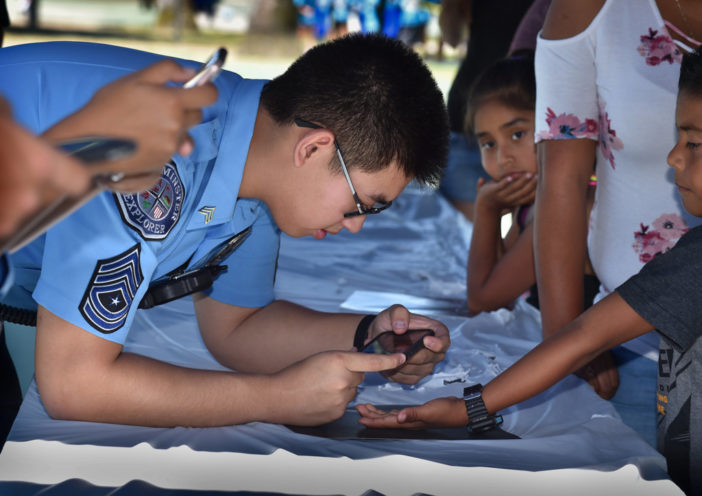When retired Tustin Police Department Det. Chuck Still first joined the juvenile division, he had 66 cases on his desk – half of which were missing kids.
There was one case that became the turning point for his future calling as an app developer. It involved a dozen young girls living in a flop house.
“Every single one of these girls [was]a runway from somewhere,” said Still, adding that though he got their names, they were fake. And they had no IDs.
Without any identification, there was no way to know where they belonged. And because there was no sign of physical harm, they couldn’t be taken into custody.
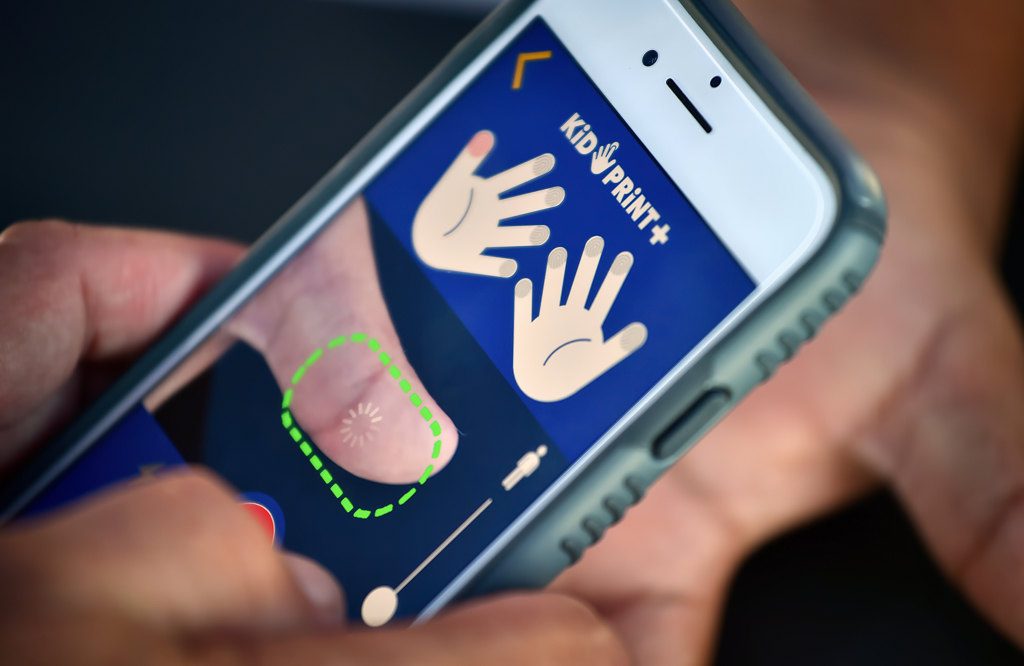
Charles Still, retired juvenile detective for Tustin PD and co-developer of Kid Print+, uses the identification app to capture the fingerprints of kids at a recent safety event in Westminster. The free app, which can store the fingerprints on parents’ smartphones, also can store other identifying information that can quickly be made available to law enforcement should the need arise.
Photo by Steven Georges/Behind the Badge OC
It’s scenarios like this that really got the thought process going. When he retired in 2007, Still started doing Live Scan electronic fingerprinting, further honing his idea.
“We saw a problem and we started to find a way to fingerprint kids because we do it for adults,” Still said, adding that when he met up with a computer engineer, they set the plan in motion and developed a program that could take fingerprints for children on a touch-less scanner. Kid Print+ was born. “The two of us came up with a way to fingerprint kids that is easy.”
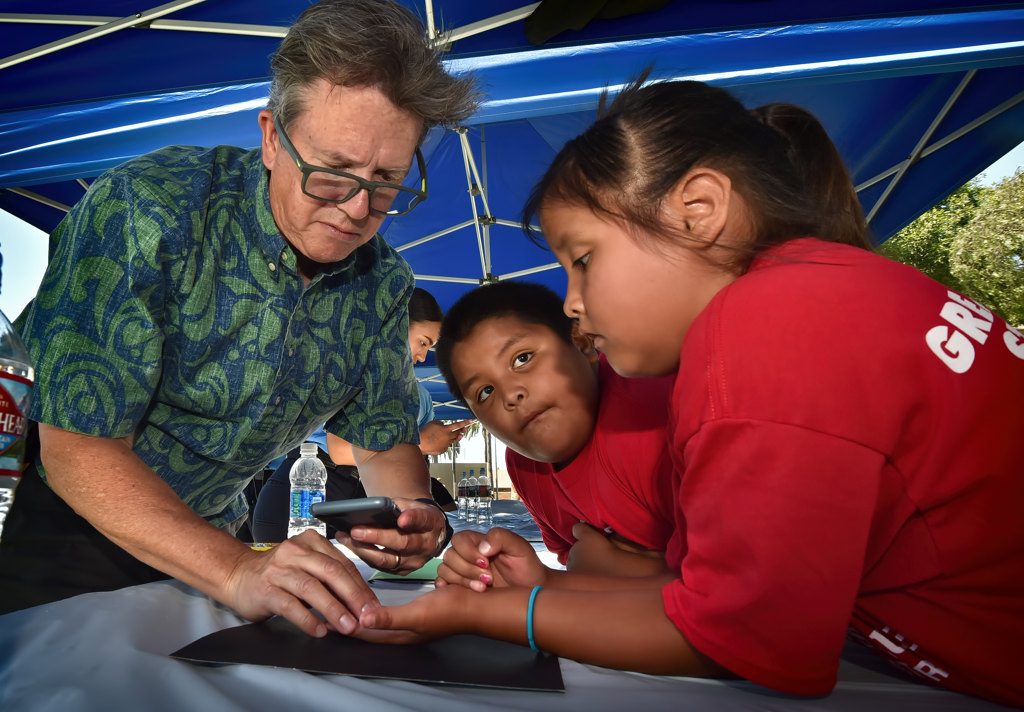
Charles Still, retired juvenile detective for the Tustin PD and co-developer of Kid Print+, uses a smartphone with the free Kid Print+ app to capture the fingerprints of 7-year-old Alexis Sanchez of Westminster, right, and her brother Edwin, 6, at a recent safety event.
Photo by Steven Georges/Behind the Badge OC
The Westminster Police Department is the first law enforcement agency to sign up with Kid Print+, which launched for the agency at its annual Safety Day this July.
WPD Det. Paul Walker said although ink fingerprinting has been traditionally used for children, it’s not very effective. Because children’s fingers are softer than adults, the ink tends to smear during fingerprinting, rendering fingerprint cards virtually unreadable.
“It really doesn’t do a whole lot of good,” Walker said.
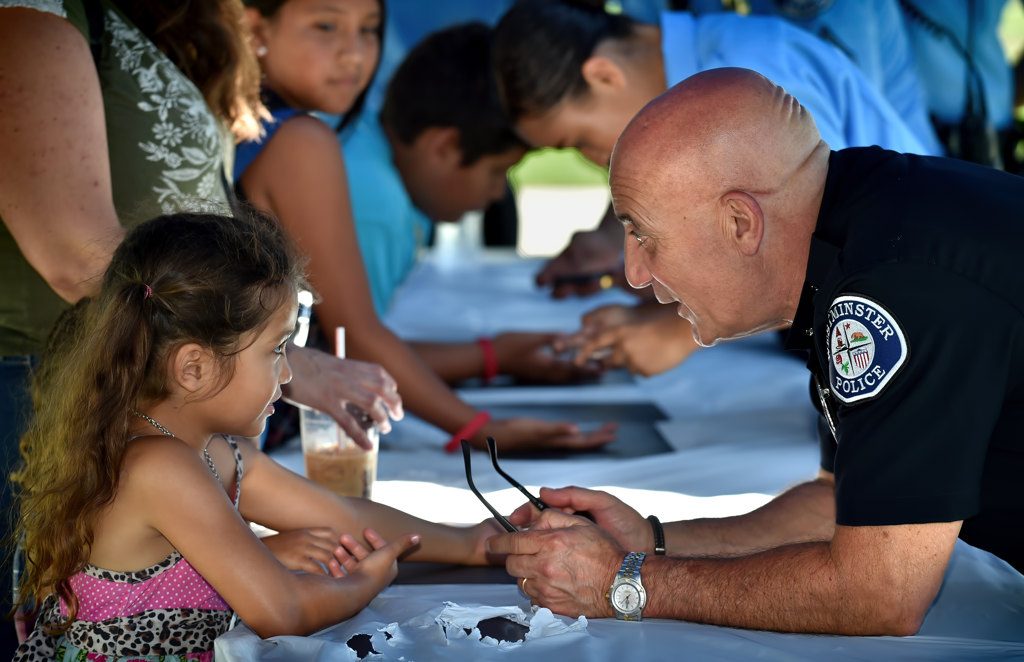
Westminster Police Chief Ralph Ornelas talks to 6-year-old Audrey Barreto of Garden Grove (her family attends church in Westminster) at the kid fingerprint booth where Westminster PD explorers helped kids and their parents capture fingerprints and other identifying information for the parents’ safekeeping during Westminster PD’s annual Safety Day at Sigler Park.
Photo by Steven Georges/Behind the Badge OC
Kid Print+ eliminates that problem by using smartphone cameras to photograph the fingerprint for an improved image.
“It works much better,” Still said.
Plus, the app allows parents to add photos of their children and detailed descriptions. If their child goes missing, the information is easily accessible through their account, which parents also can update with recent photos.
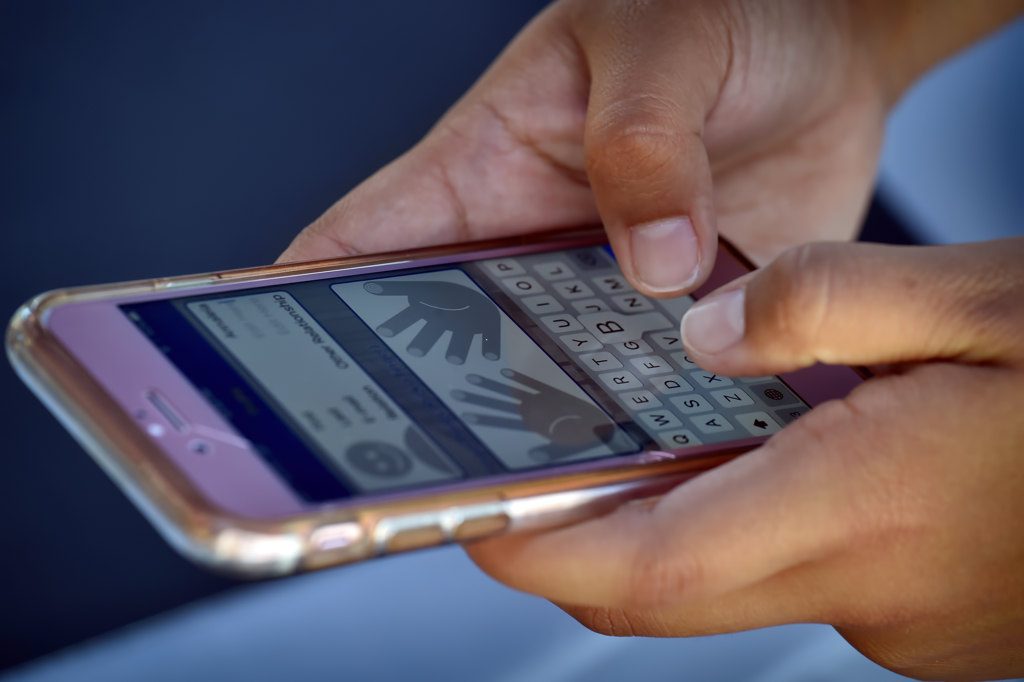
Westminster PD explorers use a smartphone app called Kid Print+ to store fingerprints and well as other identifying information on a smartphone.
Photo by Steven Georges/Behind the Badge OC
At Safety Day, WPD’s explorers scanned more than a couple hundred kids’ fingerprints, which then were emailed to parents so they could store the information and print it out at home. There is no database maintained by the agency for these fingerprints – the parents have complete control of the information.
“They weren’t aware that that technology existed and they were happy that they could have something that could be stored electronically,” said Walker of parents’ positive feedback about the app. “This allows them to have a hard copy and a digital copy at the same time.”
Though currently the scanning is only being offered by the WPD at special events like Safety Day through the explorer program, Walker, who also is lead explorer advisor, would like to expand availability for scanning for the public on a more regular basis.
“It seems to be working very well so far,” Walker said.
 Behind the Badge
Behind the Badge
